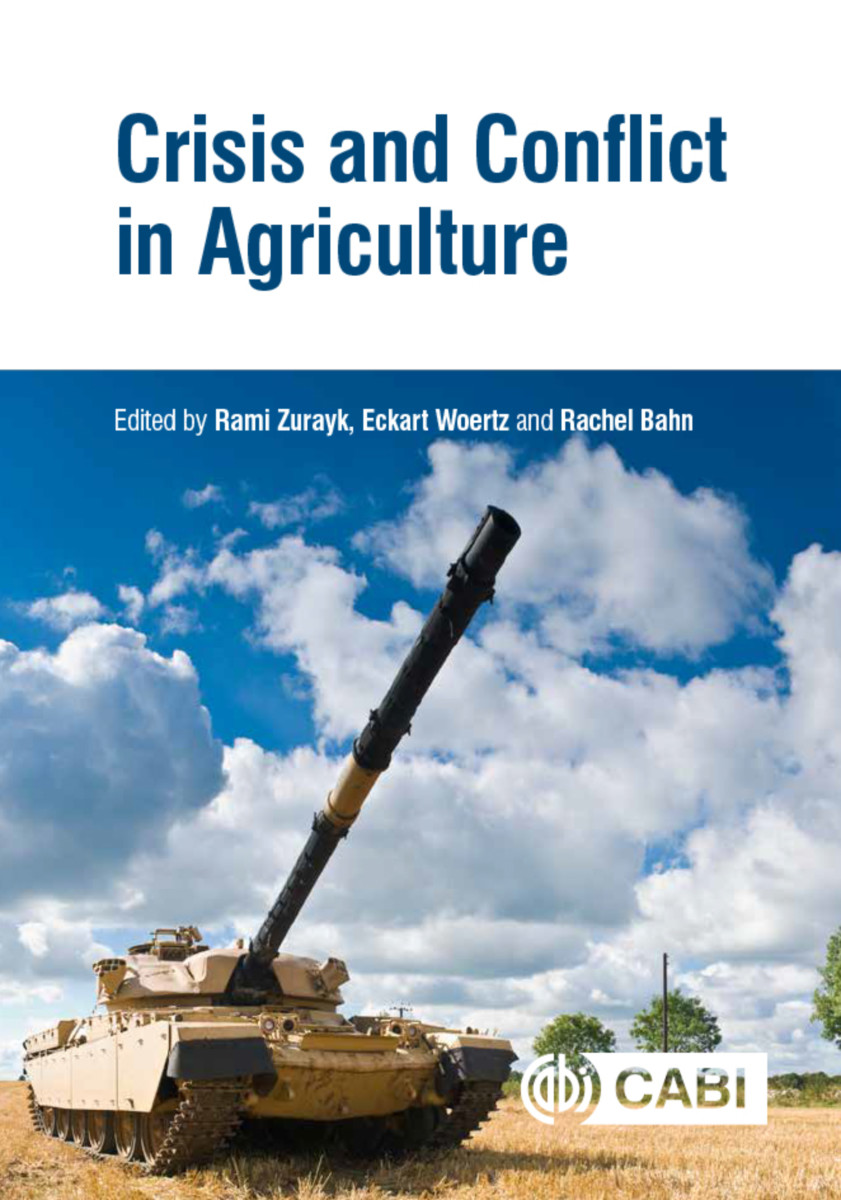Crisis and Conflict in Agriculture
- Publisher
CABI - Published
31st October 2018 - ISBN 9781786393647
- Language English
- Pages 310 pp.
- Size 6.75" x 9.5"
This book discusses the causes and effects of crisis and conflict within an agricultural and rural context. It explores issues such as competition over resources, and looks at how crisis and conflict impact upon developing country agriculture for both the physical and human agricultural landscape. It reviews crises stemming from politically-driven violence, natural disasters and climate change.
Exploring the relationship between agriculture and conflicts and crises before, during, and after crisis periods, this book:
- Evaluates controversial issues such as land-grabs and the growing of illegal crops;
- Covers methodological approaches including GIS-based studies, ethnographic studies and the blending of methods;
- Includes numerous case studies on developing countries within Asia, Latin America, Middle East-North Africa, and Sub-Saharan Africa.
Providing detailed knowledge about the interactions of agriculture, conflict and crisis, this book aims to inform future policymaking for reconstruction and to foster resilience in the agricultural sector. An important resource for researchers of agricultural economics, development studies, sustainable agriculture and food security, it is also an illuminating read for students of these disciplines and agricultural extension workers.
Section 1 – Theoretical Exploration of and Methodological Approaches to Agriculture, Crisis, and Conflict
1. Agriculture, Conflict, and the Agrarian Question in the 21st Century
2. Geopolitics, Food, and Agriculture
3. Climate Change and Conflict: Agriculture, Migration, and Institutions
4. Water, Agriculture, and Conflict: Global, National, and Local Analysis of Conflict in MENA, Sub-Saharan Africa, and the United States
5. Illegal Drug Plant Cultivation and Armed Conflicts: Case Studies from Asia and Northern Africa
6. Remote Sensing and GIS-based Technologies for Assessing the Impact of Conflict on Agricultural Production
Section 2 – Case Studies on Agriculture, Crisis, and Conflict
Middle East and North Africa
7. The “Arab Spring” in North Africa: Egypt and Tunisia
8. Degraded Capital Formation: The Achilles Heel of Syria’s Agriculture
9. Crisis and Agricultural Change in the Kurdistan Region of Iraq, 1980s-2010s: An Interdisciplinary Approach
10. Yemen’s Agricultural World: Crisis and Prospects
11. Farming for Freedom: The Shackled Palestinian Agricultural Sector
Pastoral Belts in Africa and Central Asia
12. Games without Frontiers: Development, Crisis and Conflict in the African Agro-Pastoral Belt
13. Border Change and Conflict in Central Asia: The Case of Agro-Pastoral Communities in Cross-Border Areas of the Ferghana Valley
South and Southeast Asia
14. The Politics of Resources: Conflict and Resistance in Pakistan’s Southern Punjab
15. India: Rural Roots of Naxalite-Maoist Insurgency
16. Agrarian Transition, Adaptation and Contained Conflict in Cambodia and Vietnam since the 1990s
Latin America
17. Beyond Displacement by Armed Conflict: The Relationship Between Environmental, Economic, and Armed Displacement in Colombia
18. Prior Consultation and the Defense of Indigenous Lands in Latin America
19. The Political Mediation of Indigenous Land Conflicts in Argentina
Europe
20. The Role of Land Reform in Rural Development: Productivity or Democracy?
Rami Zurayk
Rami Zurayk is professor and chairperson of the Department of Landscape Design and Ecosystem Management at the Faculty of Agricultural and Food Sciences, American University of Beirut, where he has been on the faculty since 1991. He is on the High Level Panel of Experts for Food Security, a select panel of academics informing global strategic research on the topic of food and nutrition security; and as a member of the Conflicts and Protracted Crisis Working Group of the Civil Society Mechanism of the Committee on Food Security.
Eckart Woertz
Eckart Woertz is a senior research fellow at CIDOB, the Barcelona Centre for International Affairs and scientific advisor to the Kuwait Chair at Sciences Po in Paris. Formerly he was a visiting fellow at Princeton University, director of economic studies at the Gulf Research Center (GRC) in Dubai and worked for banks in Germany and the United Arab Emirates. He is author of Oil for Food (Oxford University Press 2013), co-editor of The Water-Energy-Food Nexus in the Middle East and North Africa (Routledge 2016) and has published numerous journal articles on development issues in the Middle East. He holds a PhD in economics from Friedrich-Alexander University, Erlangen-Nuremberg.
Rachel Bahn
Rachel Bahn is the coordinator of the Food Security Program and an instructor of agribusiness at the American University of Beirut. Previously she was based in Washington, DC where she served as an economist with the United States Department of Treasury and the United States Agency for International Development. She holds degrees from the Johns Hopkins University School of Advanced International Studies (SAIS) and from Saint Joseph's University in Philadelphia, Pennsylvania.


